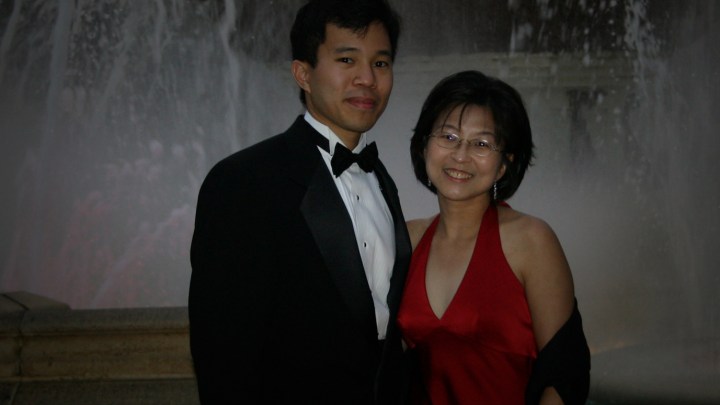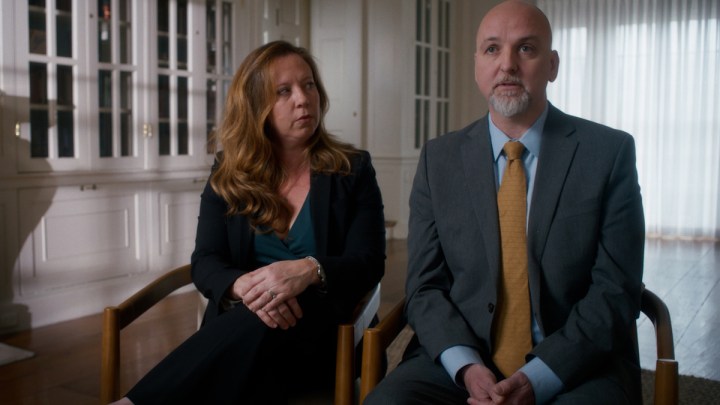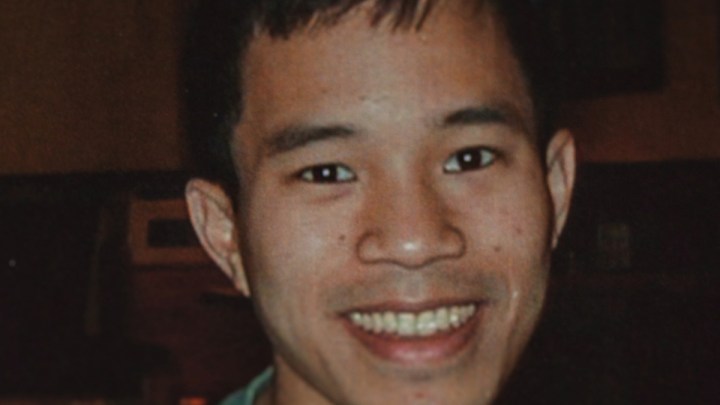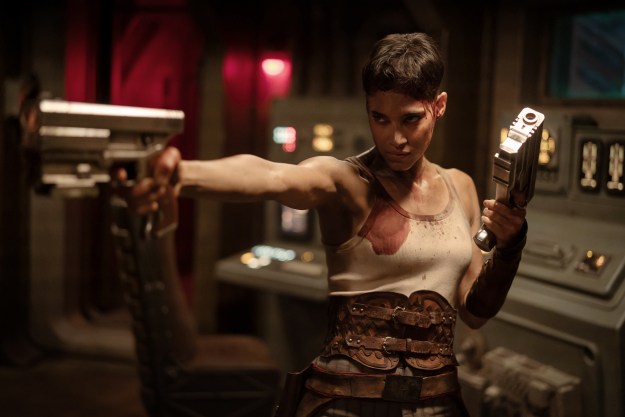On August 2, 2006, Robert Wone, a married 32-year-old lawyer, decides to spend the night at his friends’ house in Washington D.C. Shortly thereafter, one of the friends calls 911 saying Wone has been stabbed to death. What happened during that 79-minute time frame in the house? Who murdered Wone?
In tackling a case with more questions than answers, director Jared P. Scott (Requiem for the American Dream) examines the murder and searches for the truth in the Peacock docuseries Who Killed Robert Wone? Through interviews with friends, family, and investigators, Scott sets out to find answers in a Clue-like murder mystery. As the series dives further into the case, Scott discovers the same challenges that puzzled investigators over 15 years ago.
In an interview with Digital Trends, Scott discusses what drew him to the case, how to balance facts with entertainment, and how the series sheds light on a heartbreaking tragedy.

Note: This interview has been edited for length and clarity.
Digital Trends: What drew you to the Robert Wone case?
Jared P. Scott: You know, I can’t say that I’m a true crime fan. I like a good story. This happens to be a true crime, and it happens to be a fascinating story. It’s one of those stories that you could start telling at the bar. I think of Searching for Sugar Man, where you don’t even have to make a show about it. You can just start talking to somebody about this, and one’s jaw slowly starts dropping.
Here you have Robert Wone, a 32-year-old prominent lawyer, a promising young man, [who] decides to spend the night with three friends. Seventy-nine minutes after arriving at his friends’ house, one of those friends calls 911 saying he’s been stabbed. Then from there, the EMTs arrive, and they describe this odd behavior. The detectives arrive, and one of the first things you hear is that these three guys are in white robes. As the prosecutor describes it, “It looks like they’ve just stepped out of an executive steam. They got their hair slicked back.”
So this vision of three guys in a house with white robes, right there, the intrigue is there. The stage is set, and it’s this Clue-like mystery. You had four people in the house that night. One person ends up dead after 79 minutes, and the other three are saying, “Not me.” It’s a classic black box mystery.
I think everybody loves a murder mystery, so that drove me to it. I think the other side of that coin is also to seek truth and justice for Robert Wone. Most of my films have been about injustice, about inequality. The idea of trying to hold somebody accountable for this tragic death is important. That’s part of our charge in this genre. Yes, we entertain, but we also seek to try to shed light on something, bring this to a national or global scale where someone might come forward and give us a tip, give us a clue, [and] help us figure out what may have happened that night.
You talk about the true crime genre and how you’re not particularly a fan of it, but as I’m sure you know, the genre has seen a resurgence in popularity in recent years with various shows and movies. How do you think your docuseries differs from all of the others out there?
That’s a good question. I want to add one correction. It’s not that I’m not a fan. It’s just I’m not a die-hard. Again, I just like good stories, and I think this is a great story. I think that we told it well. We went to great lengths to find balance. We went to great lengths to try not to overspeculate. This case is [filled with] wild speculation. We really had to rein ourselves in because, again, no one knows what happened during those 79 minutes besides the three guys [who] were there, and all we have on record are their interrogations the night of [the death].
Really, it’s all speculation, so I think there was some humility there. We had to be disciplined and thoughtful and do right. We had to do our due diligence, and I think we did that well. We went to great lengths to not try to revictimize Robert. Again, it is a crazy story. It is a baffling story. It is a stranger than fiction story. That is part of the appeal. But we tried not to . . . it wasn’t salacious just to be salacious. It wasn’t that we were trying to dig into anything and overhype it. In a story like this, you don’t have to. It’s crazy enough on its own.
You actually can be very sober as a storyteller because no embellishment is needed. It’s just a wild ride, anyway. I think that we wanted to make sure that we walk that line in a thoughtful way. But I do think it’s a more entertaining true crime than a lot I’ve seen. Oftentimes, people just make them because people watch the genre, but I think this is just a good story. Whether you’re a fan of the true crime genre or whether you just like good stories, it’s worth watching.

You answered my next question, which is how you straddle the line between making something that’s informative and true to the facts, but also accessible and engrossing. I think this is one of the most cinematic true crime series I’ve seen, and I think it’s very respectful of the subject.
I appreciate that, Jason. I’m glad that I was able to guess your next question. I’m going to do that right now, too. Luke Geissbuhler, who’s the [director of photography] on this (he was also the DP on the Borat films), has done a lot of great stuff. There’s a certain integrity that we wanted to bring to this piece. Of course, we want it to be cinematic.
We’re ultimately taking all these different pieces, right? You have crime scene photos. You have primary source documents with the affidavit. You have recreations. You have interviews. You have other pictures. I always want to try to make those cohesive. It doesn’t have to feel like a mishmash of pieces. The docuseries has to feel like a very cohesive, deliberate, considered mosaic, and I think we were able to capture that. Again, we were able to lean into the themes of this impossible puzzle. There’s always something missing. Things aren’t adding up. Things aren’t what they seem, and you can see that threaded throughout the graphics.
You’re only as good as the elements you have. You’re only as good as the story you have, and you have to maximize all that. I think our “characters” were great. They’re likable. They’re thoughtful. They’re insightful. Robert’s friends are heartwarming. There’s so much empathy there too. There’s also some levity when you need it. Everyone needs to laugh sometimes in a thriller. Craig [Brownstein] and David [Greer], our bloggers, bring that. Sometimes, you have to laugh just to ease the tension or aid in the tension.
I think all that adds to that cinematic feel. It’s not just what comes out of the camera. Also, Tyler Strickland did the music, and the music is really cinematic. I know that word gets overused, but I do believe that’s the case. It’s also how we weave it all together, [and] it’s how we glue it together. I appreciate you picking up on that because we worked hard to make that happen. Also, another great thing is we had access to the model house. It was something that we did not make for the show. That was the actual [model] house used by the prosecution during the trial.
Oh, wow. That’s amazing.
Yeah. I mean the fact that it’s still around 12 years after the trial was remarkable. We actually wanted to get a hold of much more evidence, but weren’t able to. The fact that we got that, and we were able to shoot that in such a beautiful way, that becomes such a beautiful, visual through line for us to kind of return to.
Because again, what happened in those 79 minutes in that house? At first, you feel like that might be constricting as a storyteller. It’s not like this happened in a cabin in the woods, and you can shoot these great Ozark kinds of landscapes. It’s a small row house in Washington D.C. We wanted to lean into that, and I think we were able to make that small aspect, that tight aspect, feel big and feel mysterious.
In making the docuseries, what was the most shocking thing you discovered about the case?
That’s a tough question because there are so many shocking things, but I’ve sieved through it so much, and I’ve lived and breathed it, that maybe nothing was shocking to me. It’s all been kind of alchemized now in the story. One of the things that gives me pause is one of the things our interviewees, Craig and David, said. They posed the theory that maybe the whole sexual assault piece is just a MacGuffin. Maybe that never [happened]. Ultimately, that never made it to trial, but maybe that was just something to distract us [from the real motive].
The idea that something as baffling and as confusing as “was Robert sexually assaulted that night or not,” the audience will figure out. They’ll go on a journey with DNA being found and reexamined. There are some shocking discoveries there, but did any of that matter? Is that just something to take our attention away from something else? I don’t know. Maybe [it’s] the idea of we don’t know what matters, we don’t know what’s trivial, and we don’t know what’s important.
The shocking thing is there was never any smoking gun. There’s never anything we could really sink our teeth into, so you have to look at all these things equally, all these clues. I think that’s maddening because there are so many of them. Yeah, I don’t know. What if some of these things are to distract us? I think that happens in storytelling, and maybe somehow, that happened in our story. What if some of these pieces that the audience sees are to divert their attention from what really happened, which we still don’t know?

Was there anybody you wanted to interview for the series that you couldn’t? And why?
Sure. We would have loved to have sat down with Robert’s wife, but it’s been 16 years. She’s moved on. Again, from everything I’ve heard from the people that know her, from the prosecutor and the investigators, she’s a private person. She doesn’t want to relive this story, and I understand that. I respect that. Of course, we would have loved to have the heart and soul of Kathy Wone, but we also have to be careful in this genre that we don’t revictimize the people in our stories. That we don’t make everyone shattered by the story retraumatize it.
I hope that’s not the case because, again, the idea is that this story gets some traction and enough people hear about it and see it, [so] somebody comes forward. You use this as a tool for a larger quest for justice. Spoiler alert, but no one’s been tried for the murder of Robert Wone. Charges have been brought against people, and people have been exonerated of those charges, but no one has been charged in the murder of Robert Wone. This is still an open case.
That’s amazing to me. I knew nothing about this case. It was a roller coaster ride. I know that sounds really trite, but it felt like I was going up and down, up and down. You think you found the answer, and it’s like, “Nope, that’s not it.” You have to move on because the investigators have to move on. There are so many dead ends. It’s enthralling and frustrating at the same time.
Oh, yeah, totally. It’s frustrating to put that together, too. To try to lead an audience down a path and then have them hit a dead end, it’s difficult. The story can be very circular, and I think we still had to tell a story with a narrative arc. Part of the way you might converse about the story is quite different than how you might experience it in the show. But I appreciate that.
It’s not trite. It’s true. There are so many twists and turns. I had the same feeling, and I think most people will. It’s like, “How did we not know about the story? How was this not a national story?” One of the pundits says in the show that this was a murder case, but it’s not a murder trial. Maybe that was it. Maybe, if it was a murder trial, I don’t know. It’s one of those things where going back to your first question, how did I never hear about this? And after I heard about it, God, everyone should know about this. It’s one of those things where once you know about it, you question why you never did. You want to keep talking about it.
Who Killed Robert Wone? is now streaming on Peacock.




